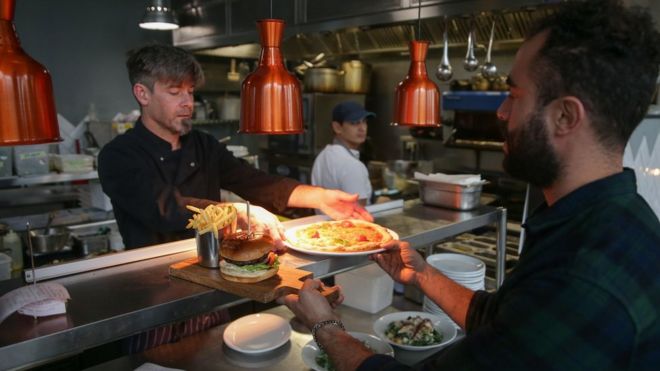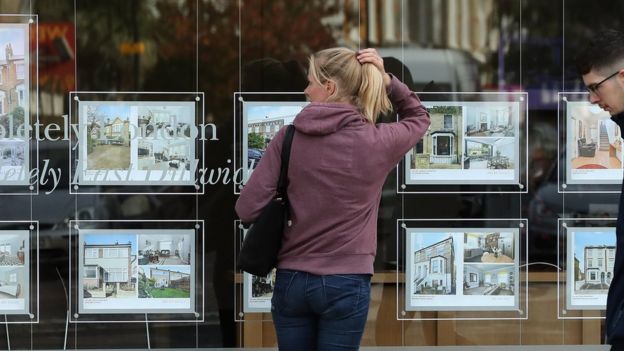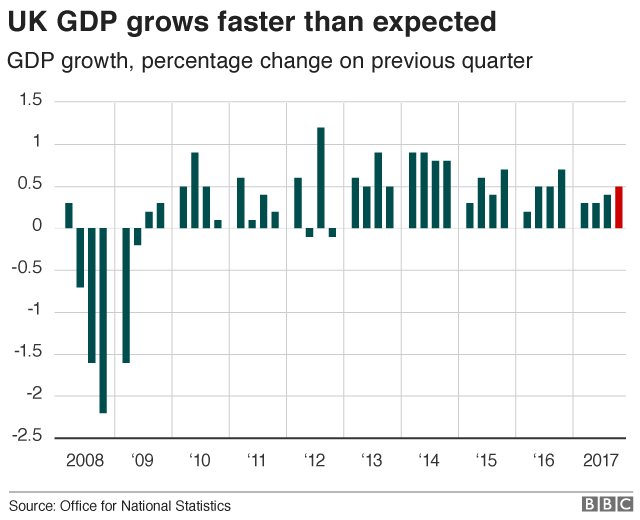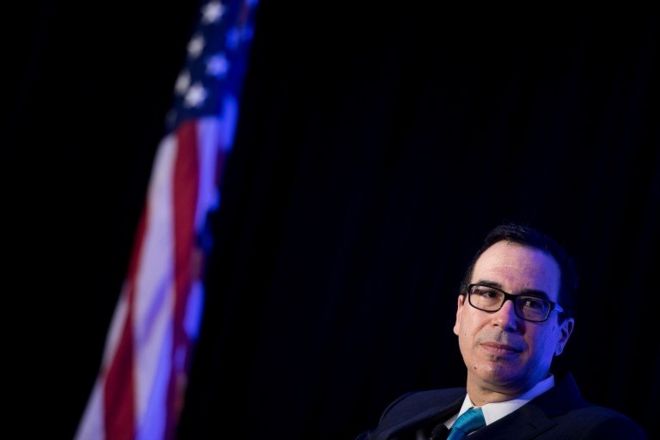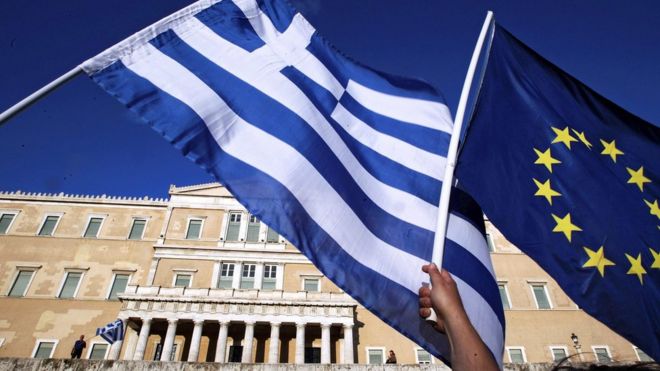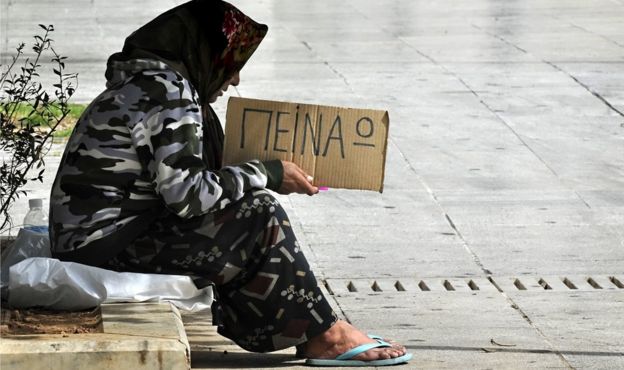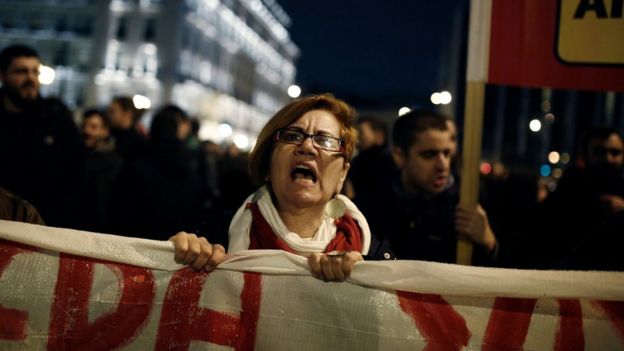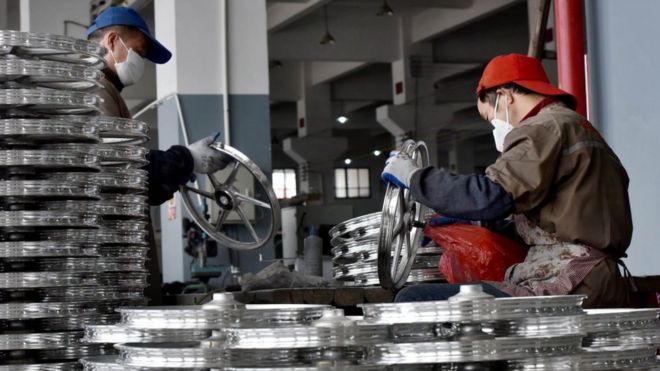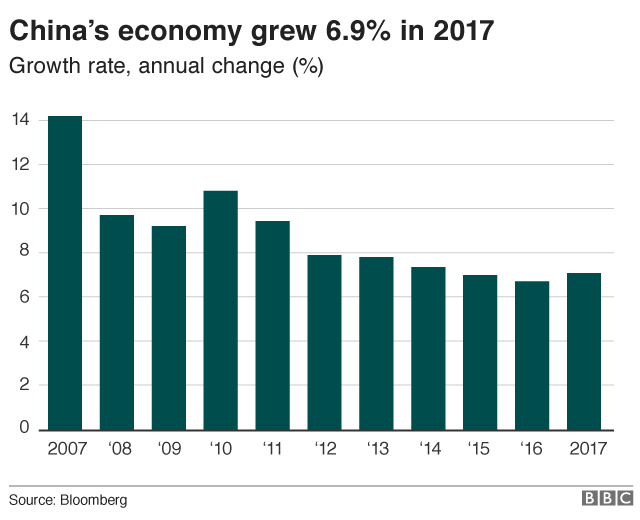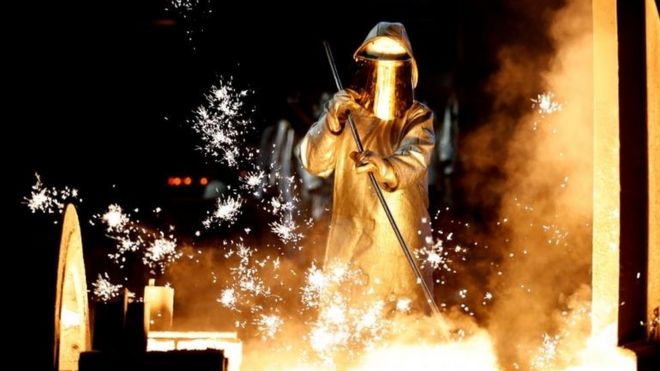
The eurozone's economy grew at its fastest pace for a decade in 2017, according to official figures.
The economy of the 19-nation bloc grew by 2.5% last year, according to Eurostat, the strongest growth since the 3% rate seen in 2007.
Eurostat also said that the eurozone grew by 0.6% in the final three months of 2017.
The European Central Bank has been carrying out a huge stimulus programme in an attempt to drive eurozone growth.
That programme has seen the bank slash its main interest rate to zero, and spend billions of euros a month on buying financial assets.
Growth in the eurozone has been picking up and it is now regarded as one of the strongest parts of the global economy.
Analysis by Andrew Walker, BBC World Service economics correspondent:
The growth figure is slightly slower than the previous quarter, but it still suggests the improved recovery of the last couple of years is being sustained.
That improvement is one of the reasons the short term global economic outlook has picked up.
The region has had support from the extremely easy money policy of the Eurozone central bank.
Its main interest rate is zero and another - the rate it pays for overnight deposits by banks - is negative.
And it is still pursuing the policy of buying financial assets known as quantitative easing, though it has cut back the amount it buys each month.
The US Federal Reserve by contrast ended its asset purchases in October 2014 and has raised its main interest rate five times from the low it reached in the aftermath of the financial crisis.
So the Eurozone is looking better, but it's not back to normal.
In December, the ECB lifted its growth estimates for the eurozone, predicting growth of 2.3% in 2018, up from a previous estimate of 1.8%, while 2019's forecast was increased to 1.9% from 1.7%.
Last week, the International Monetary Fund (IMF) said the prospects for the global economy were improving, as it raised its global growth forecast for this year and next to 3.9%.
The IMF said the recent pick-up had been pretty broad-based, particularly in Europe and Asia.
'Solid' growth
The Eurostat data also showed that the estimate of eurozone growth in the third quarter of last year was revised up to 0.7% from 0.6%.
"The eurozone economy picked up momentum in the second half of last year," said Claus Vistesen, chief eurozone economist at Pantheon Macroeconomics.
Mr Vistesen described the 0.6% growth seen in the fourth quarter as "solid", adding it was probably driven by investment and net exports.

